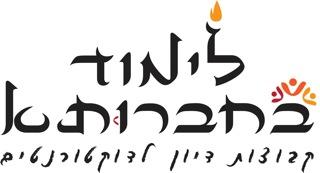במפגש הציגה ראשת הקבוצה, נור קאסם, את מחקרה:
Intragroup empathy among disadvantaged group members in an advantaged-dominated environment
Disadvantaged group members who join advantaged group-dominated environments are faced with two-fold denied empathy, both from their outgroup and ingroup. The intragroup decreased empathy is attributed to the association of disadvantaged group members with signs of the advantaged group. Yet, little is known about the nature of these signs/characteristics, the effect of different contexts of adopting these signs on empathy, and whether decreased empathy is also experienced among disadvantaged group members who share the same advantaged group environment. This study aims to explore the intragroup empathy among disadvantaged group members in an advantaged-dominated environment. 183 Palestinians who are citizens of Isreal students were randomly allocated to one of three groups: control, free will, and coercion. By the condition, participants read a scenario about a Palestinian student who failed her seminar paper and then was asked to rate empathy, prosocial behavior, togetherness, and schadenfreude, among other measures. The findings demonstrated decreased empathy, prosocial behavior, a sense of togetherness, and increased schadenfreude in the free-will condition compared to other conditions. In the second study, the source of the failure was manipulated to include a direct and indirect reference to the advantaged group. In the third study, empathetic reactions toward positive and negative outcomes were measured. Overall, this research produces knowledge about the social texture of a disadvantaged minority in an advantaged group environment – what could harm and what could preserve empathy. Thus, this study could serve as a foundation for developing intervention tools to maintain intra-group empathy.

